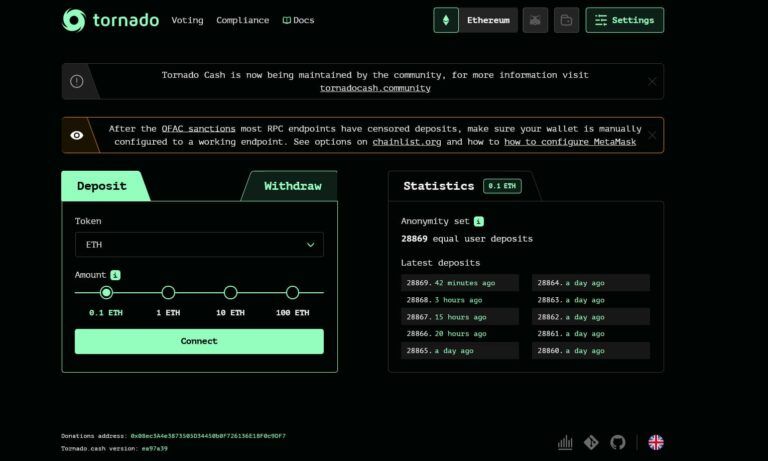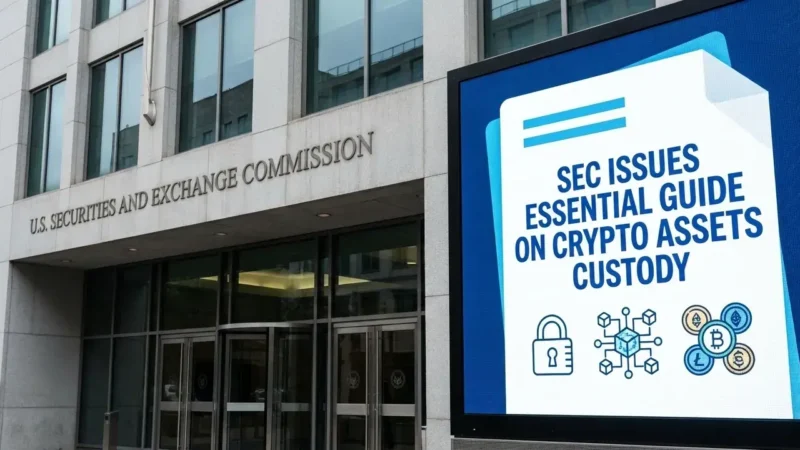Why new lawsuits against Tornado Cash are getting so much attention

The Tornado Cash case is not over yet. US authorities raise new charges, triggering heated discussions in the crypto scene. Why the new allegations are attracting so much attention.
New lawsuits against Tornado Cash: That’s what it’s all about
Since the summer of 2022, the developers of Tornado Cash have been increasingly in conflict with the authorities. US authorities in particular are targeting the programmers. As the US Attorney’s Office recently announced , new lawsuits will follow.
Various U.S. government agencies “announced the unsealing of an indictment charging Roman Storm and Roman Semenov with conspiracy to launder money, conspiracy to commit sanctions violations and conspiracy to operate an unlicensed money transfer business.”
According to the investigation, cryptocurrency mixer laundered around one billion US dollars. The notorious North Korean hacker collective Lazarus was said to have been in possession of several hundred million US dollars.
Roman Storm was arrested in Washington state on Wednesday in connection with the lawsuit but has been released after posting bail . The whereabouts of Semenov, who is also accused, are unknown.
“Roman Storm and Roman Semenov are said to have operated Tornado Cash and knowingly facilitated this money laundering. They knew they were helping hackers and scammers hide the fruits of their crimes,” prosecutor Damian Williams describes the incident.
In the past, cryptocurrency mixer drew a lot of attention after Alex Pertsev was arrested in the Netherlands in 2022 at the request of the US. Pertsev was released in April after months in custody.
He was also accused of money laundering. Critics suspected his previous indirect work for the Russian secret service FSB could be behind the arrest. Pertsev also belongs to the circle of main developers.
Why the lawsuit is attracting so much attention
The renewed lawsuit against cryptocurrency mixer is attracting a lot of attention in the crypto scene. There are wild discussions on Twitter – but why at all? Tornado Cash is based on smart contracts on the Ethereum blockchain and is therefore neutral and permissionless.
The idea of punishing the developers of such an open protocol for specific use cases resents many crypto enthusiasts. If developers were to conduct checks, the entire neutrality of the blockchains would be jeopardized.
“This is an attack on privacy. They want to force open source developers into obedience. The government doesn’t want you doing things they can’t monitor,” crypto expert Chris Blec wrote on Twitter.
Developer Riccardo “Fluffypony” Spagni sees things a little differently. Spagni is known as the longtime main developer of the privacy coin Monero. On Twitter, he explained that the criticism from many crypto enthusiasts was too bold and too dishonest.
There is a lot of fear being spread on Twitter surrounding the Tornado Cash indictment, leading to conclusions ranging from ‘why don’t we arrest Bill Gates for writing software to help criminals’ to ‘this is the end of privacy software’ leads. I reject these conclusions as nonsensical.
The fact that the lawsuits came about at all is related to Tornado Cash DAO. This supposedly decentralized organization is responsible for managing the mixer and receives revenue from fees generated by the service.
Voting shares are obtained by purchasing the Tornado Cash (TORN) token, which is largely owned by the main developers. The mixer therefore has little to do with decentralization. It’s more about the appearance of decentralization.
Spagni sees the problem in the creation of this organization. “The developers made money off the fees while also reading about Tornado Cash being used to launder money stolen from hacks. Even starting the DAO is a challenge because it means they created and launched a company that has benefited from criminal activity.”
What can developers learn from the Tornado Cash case?
Spagni believes developers could learn a lot from the Tornado Cash case. He and other programmers – such as Roger Dingledine, who works for the Tor Project, were never targeted by the authorities.
“If they hadn’t created a DAO and instead just deployed the smart contracts and fled, it would have been similar to Monero and other financial privacy projects,” Spagni writes.
Developers working on dangerous or dubious projects should also keep their own identities hidden. Other well-known developers reject Spagni’s representation as incorrect.
Coincenter classifies the new lawsuit against the developers as contradictory. The US supervisory authority FinCEN makes a conscious distinction between software providers and money transfer services.
Here are our initial thoughts on today’s Tornado Cash indictment. The factual allegations of unlicensed money transmission are in conflict with FinCEN’s longstanding guidance that an “anonymizing software provider is not a money transmitter.” https://t.co/9QBiV9sjnd
— Peter Van Valkenburgh (@valkenburgh) August 23, 2023
Ethereum mixer remains active
Despite sanctions and official bans by the US, the Ethereum mixer remains active. The service can no longer be reached via the domain Tornado.Cash. Tornado Cash and the newer version, Tornado Cash Nova, can still be accessed and used via IPFS.





